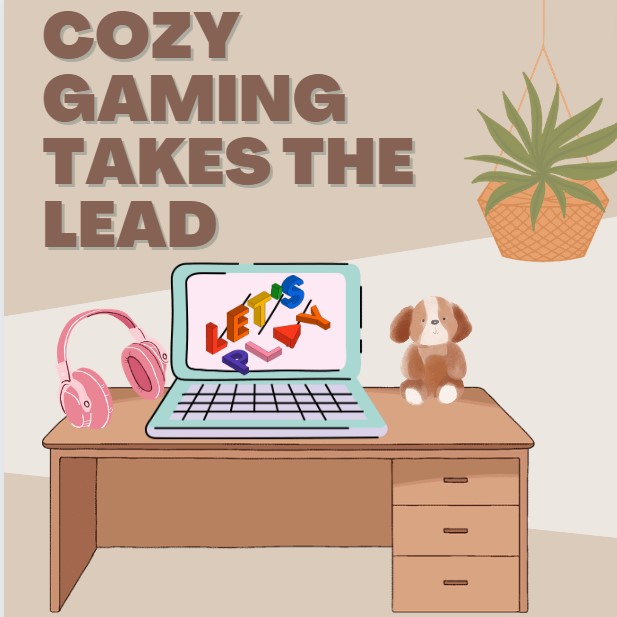Television and movies have long been used to promote new ideas, show people a new way of thinking and give a voice to people who might normally be silenced. Recently, big steps have been made toward the inclusion of all types of people in our media- people of color, transgender people, the LGBT community and of course, the neurodivergent.
Even films dating as far back as the 50’s have touched on these subjects, with films like “The Bad Seed” and “Night, Mother” exploring the topic of the human mind.
Sometimes is it more overtly stated, like how with “Night, Mother” it’s pretty obvious the daughter is suffering from depression and suicidal tendencies, whereas a film like “The Bad Seed” sort of gives a broader look and doesn’t really specify much, but the audience can make their assumptions.
However, what we run into frequently is the problem of mental illness becoming the only thing we ever know about a character, and the media it’s presented in warping what our perception of it should be.
When it comes to the subject of mental illness in the media, people like to bring up the TBS comedy “The Big Bang Theory,” and how Sheldon Cooper tends to come off as a poor representation of the autism spectrum, even if they never outright say he is autistic. This doesn’t so much come from the character itself, however, but how the show is geared to make you look at him.
Sheldon’s perceived autism, which is just what I’m going to call it because it’s clear that’s what they based his personality off of, is played more for comedy rather than sympathy. And this isn’t always bad.
There’s been other instances where mental illness has been used for comedy, most notably and ironically enough one of Jim Parson’s other roles in the play “Harvey.” This is an instance where the main character, Elwood P. Dowd’s, mental illness is also played as a joke. Elwood has hallucinations, and the majority of the play is spent trying to get him into a mental hospital.
The different between Sheldon and Elwood, however, is how the audience is supposed to view them.
Sheldon is supposed to be perceived by the audience as funny, but not sympathetic. Elwood isn’t exactly sympathetic either, but he never does anything to warrant how he’s treated in the play. The fact that he thinks he sees a 6 foot tall rabbit named Harvey is only part of his character, the other part is a perfectly amicable guy who’s quirky, but polite to no end and the nicest guy you’ll ever meet. He’s a little off, sure, but he’s harmless. Sheldon, however, is used in the show as fodder for comedy.
I’m inclined to agree with internet movie critic The Nostalgia Critic’s observation that all comedy is based on some form of suffering- someone has to be hurt or react negatively to a situation in order for there to be comedy- in other words, someone has to be the butt of the joke. Sheldon is time and time again used to create the butt of the joke. His mental illness is used to get annoyed reactions out of the characters and make the audience laugh. He’s funny because he makes other people suffer for no reason other than he perceives the world in a different way.
Elwood makes people suffer too, but not as directly. The characters in Harvey suffer because they try to change Elwood, who doesn’t really need to be changed.
The comedy comes from the fact that everyone else makes the assumption that Elwood has to be put in a mental hospital, when he arguably doesn’t need to be. Your perception of Elwood is that you like him, your perception of Sheldon is that he’s annoying.
And there’s the main cusp of how to write a character with mental illness- figuring out where the audience’s emotions should be.
Suzanne from “Orange is the New Black” is sympathetic. We don’t excuse the fact that she did a crime, but we understand her way of thinking and how the justice system would treat her harshly. She has a mental illness, and that’s a big part of her character, but it’s to reflect back to the audience that Suzanne needs more help than she’s getting, which elicits sympathy.
Also, that’s not the only part of her character. We see more of Suzanne than her mental illness, which, again, may or may not be autism, we see she’s outgoing, creative, intelligent and a patron of theatre. Her mental illness isn’t used to back people into a wall and annoy them, it’s to define a character and reflect injustices of the prison system.
When you try to make mental illness ALL we know about a character, you get characters like Mike from “Total Drama.”
“Multiple Personality Mike” as he’s called, in the show, gets a special amount of hatred from me because this is a kid’s show. So this would very well be a child’s first time seeing something like this. And what does “Total Drama” teach kids?
It teaches them that having multiple personalities is funny. It teaches kids that you should trigger that person to “swap” personalities for your own advantage. It teaches kids that mental illness is all this person is and all they ever will be, but that’s ok, because it’s FUNNY! Look! He thinks he’s a GIRL!
Worst of all, it teaches kids that mental illness can be turned off any time they want to. This character’s arc ends when he literally turns off his multiple personalities and turns quote/unquote normal. And this is ALL this character is. Every aspect of his personality and character is played around the fact that he has dissociative identity disorder.
It’d take the “Total Drama” series two more seasons to even start getting this right- in season 6 there’s a character named Dave who has obsessive compulsive disorder, but the show takes the time to show that, while they may use it as a joke sometimes, it’s a serious thing to Dave.
They took two seconds to show kids that if someone is panicking like Dave does, the right thing is to stop and help them get through it rather than laugh. And later on, when Dave becomes more of an antagonist, it’s not in any way related to his OCD, it’s just because he’s a jerk. Which is fine- make him a CHARACTER rather than a walking stereotype. Or better yet, leave this topic to a show that isn’t primarily a comedy.
Writing a character with a mental illness in a TV show or movie can be a great way to educate people. I’m not saying it’s impossible to make it appropriately funny, but you have to be aware of what role your character plays in the work of fiction, and how the audience will perceive them. If you want to make a story richer by adding characters of all different backgrounds and walks of life, more power to you. But just be aware of what that power entails.







